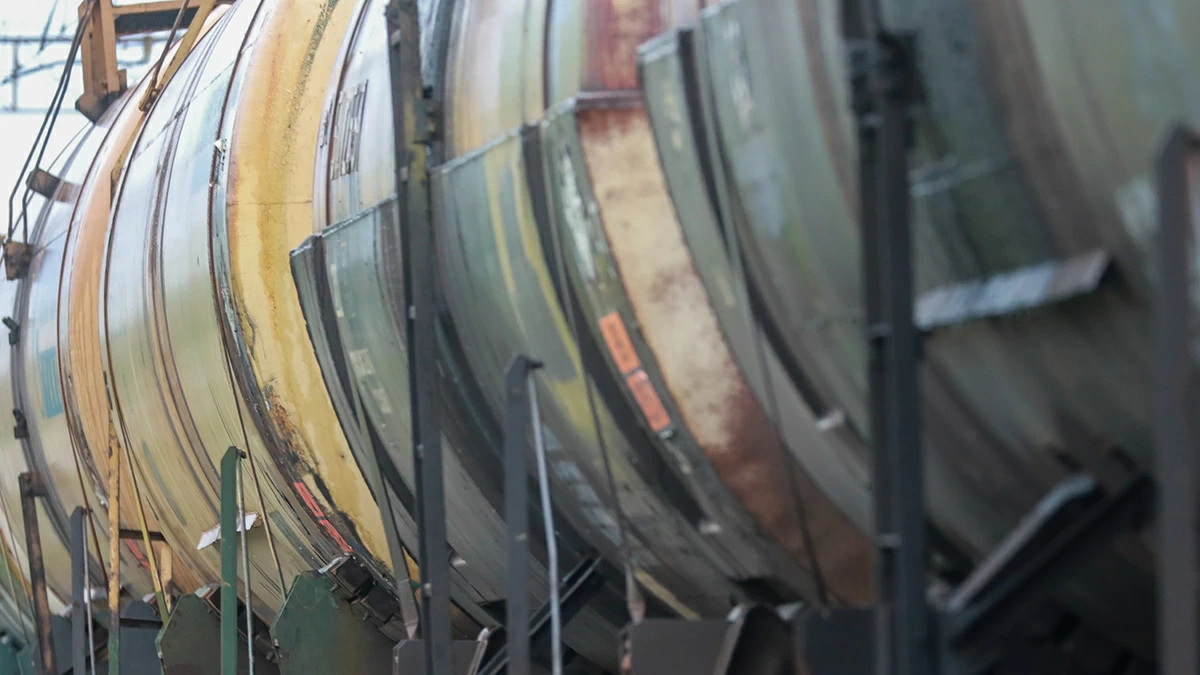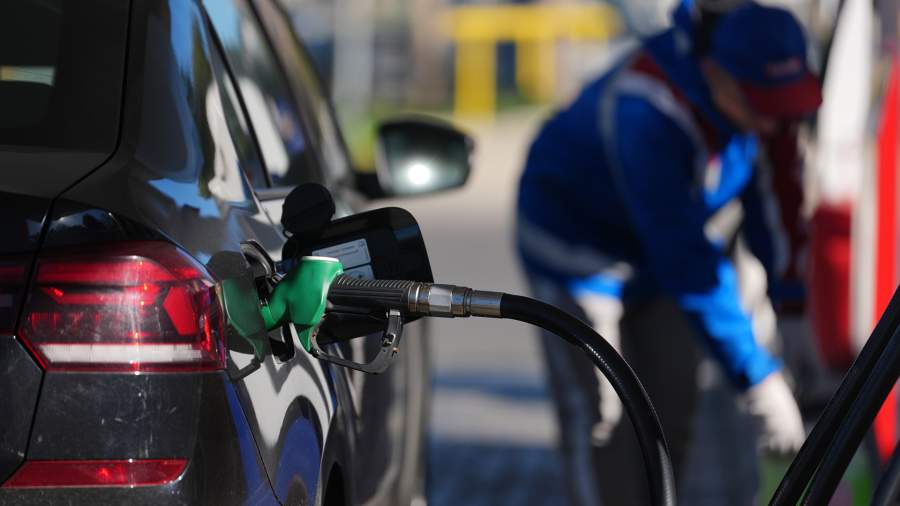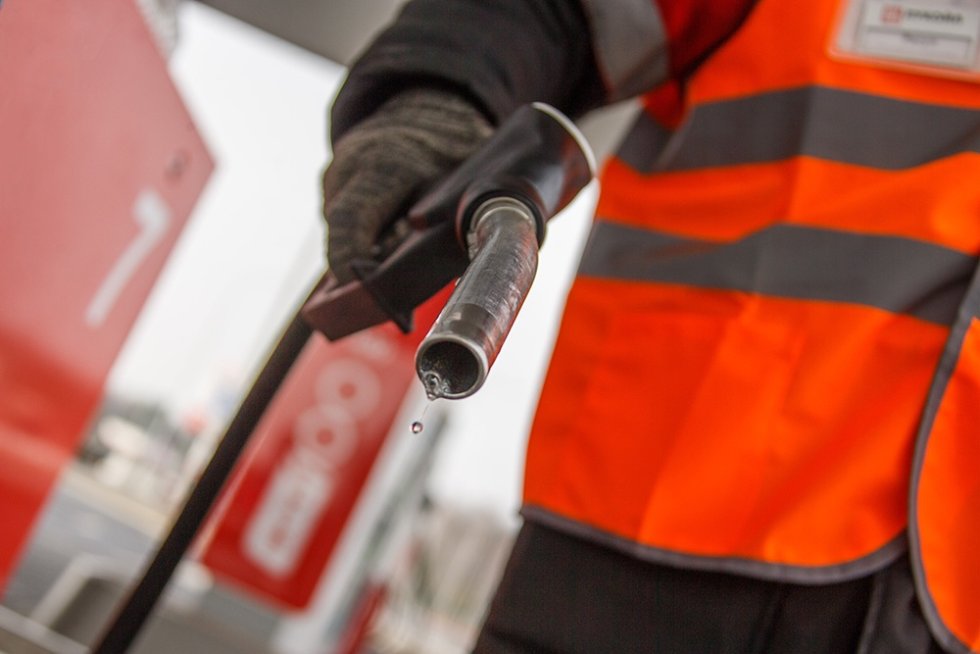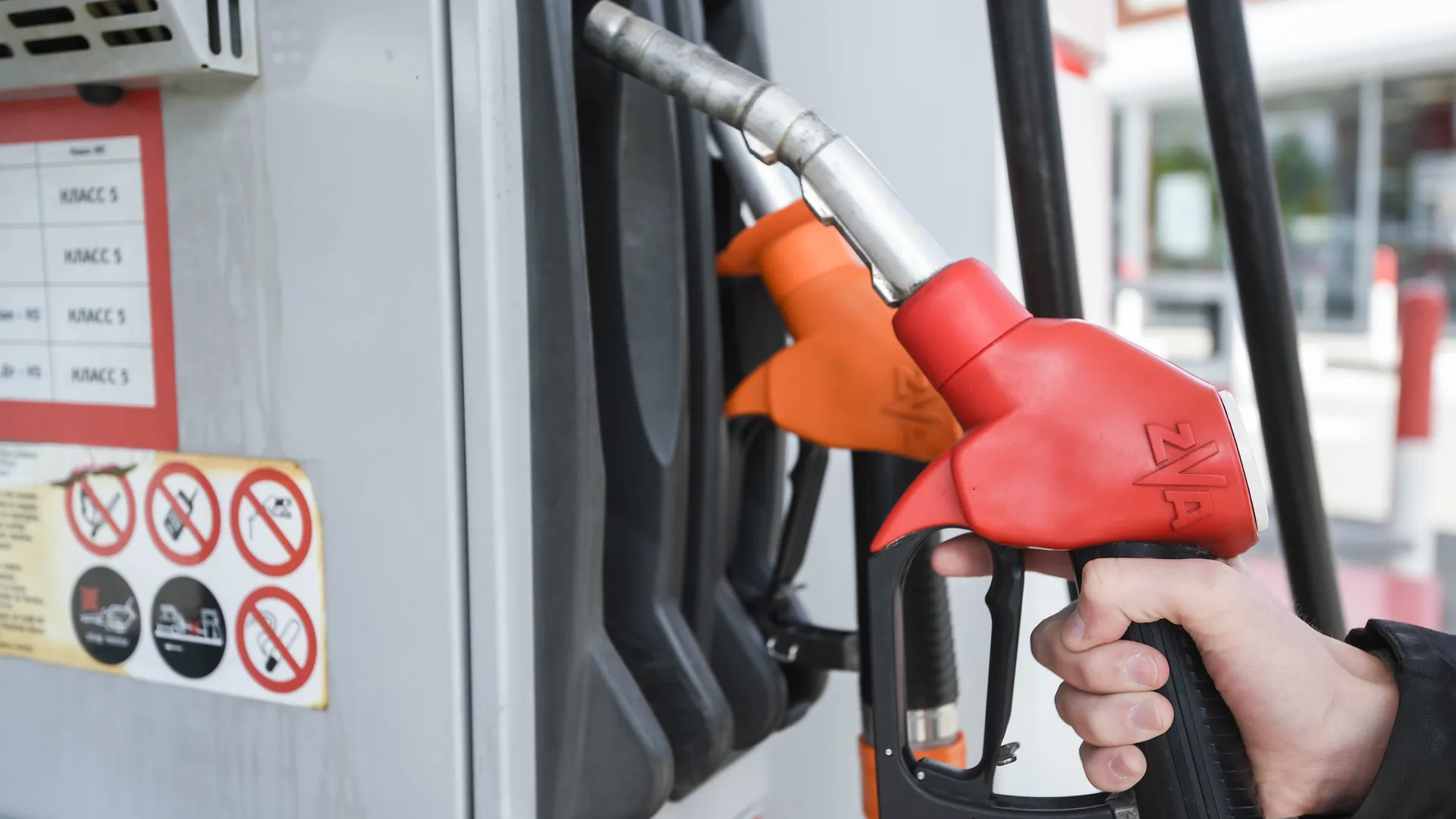According to the latest data from Rosstat, the price of AI-95 gasoline at gas stations rose by 7.5% since the beginning of the year as of September 8, while AI-92 increased by 7.2%. On that same date, the consumer price index (CPI) rose by 4.03%, indicating that the rate of increase in gasoline prices outpaced consumer inflation.
The Russian Fuel Union (RTS), which unites 29 associations and enterprises created by market participants from various Russian regions, sent a letter to Deputy Prime Minister Alexander Novak proposing to stop regulating retail gasoline prices based on consumer inflation. In the letter, quoted by TASS, the RTS points out that the current growth in retail prices for motor fuels is targeted by inflation levels characterized by the CPI calculated by Rosstat. The letter states that the structure of consumer spending within the CPI calculation includes around 800 items, the overwhelming majority of which are unrelated to the cost factors of fuel, while industry expenses are not considered. Thus, the union proposes regulating the increase in gas station prices with a special composite index, which would include key factors influencing fuel prices: tax and credit burdens, the minimum wage (MW), average salaries, transportation tariffs, and utility rates, along with the costs of equipment upgrades. The RTS notes that these indicators have been growing at rates exceeding inflation: gasoline excise taxes increased by 13.5%, profit tax rose by 5 percentage points to 25%, the MW increased by 16.6%, and average salaries nationwide grew by 15.1%, while tariffs for Russian Railways increased by 13.8%, and utility tariffs climbed by 13.1%. Additionally, credit costs have also risen.
"Considering the pricing factors of the composite index, by the end of 2024, retail gasoline prices would have had an increase of approximately 15%," stated RTS head Evgeny Arkushin to Interfax. “According to Rosstat, in 2024 retail prices increased by 11.1% with a CPI of 9.52%. However, the growth in gas station prices was contained by retail profitability losses, which negatively impacts the economy of gas station networks in Russia. These losses have been increasing every year.”
Novak instructed the Ministry of Economic Development, Ministry of Energy, Ministry of Finance, Federal Antimonopoly Service (FAS), and Rosstat to evaluate the RTS proposal and present the results by September 25. The Ministry of Energy refrained from commenting on the RTS's suggestion, informing Forbes that the ministry is “conducting systematic work to ensure stable supplies of motor fuel to consumers, including price stabilizing measures”, and that it “conducts daily activities with regions and undertakes all necessary measures to ensure the uninterrupted supply of fuel to the economy and the population of the country.” The Ministry of Economic Development did not respond to Forbes' request.
"Force Majeure Situation"
While retail prices are not legislatively regulated, authorities monitor the rate of increase in gas station prices to ensure they do not accelerate significantly. Sergey Tereshkin, CEO of the Open Oil Market fuel marketplace, reminds us that there has been an informal rule in the country for many years: the growth rate of retail gasoline and diesel prices should not exceed the overall rates of consumer inflation. If this rule is violated, he states that regulators typically close exports. However, Tereshkin believes that this year the situation has worsened due to attacks on refineries, which forced plants to cut fuel production. Currently, prices are once again outpacing inflation dynamics, partly due to heightened risks of shortages, he points out. "Consequently, voices in the industry are calling for (and not without reason) to choose a new benchmark, as previous measures cannot be applied in a force majeure situation," says Tereshkin.
Sergey Mironov, chairman of the "Fair Russia-For Truth" party faction in the State Duma, immediately reacted to the RTS proposal, calling it “the height of arrogance.” "The moguls of the fuel business suggest considering not just inflation, but also the tax and credit burdens of the industry, payroll increases for staff, rising tariffs, modernization costs, equipment repair, and even staffing issues. In a word, every conceivable expense. And they want all this included in the final fuel price. This means delivering yet another blow to the welfare of citizens and further fuelling inflation in the country,” Mironov stated. He also expressed serious concerns that the government "will yield to the ‘poor’ oilmen and allow them to raise prices."
The RTS proposal entails two negative consequences: firstly, gasoline prices will continue to rise, and secondly, such a decision, if accepted, will further accelerate inflation, believes independent analyst Leonid Khazanov. In his view, this would adversely affect many sectors of the Russian economy. "For instance, a significant blow will be dealt to agriculture, which is particularly sensitive to the dynamics of fuel prices factored in by agribusinesses and farms along with prices for pesticides and mineral fertilizers," Khazanov says. "Accordingly, the prospects for the next farming activities and ultimately the harvest of crucial agricultural crops remain uncertain."
According to the expert, increases in gasoline prices will be felt by both passenger and freight transport operators, who will be compelled to raise tariffs, thus prompting shippers to shift their focus to rail transport. Ordinary citizens will gravitate towards trains, predicts Khazanov. In the long term, a decline in passenger and freight transportation, and even the bankruptcy of certain logistics companies is a potential reality, believes the expert.
Irina Kezik, head of the Tekface project and an expert at the Intersectoral Expert-Analytical Center of the Union of Oil and Gas Producers of Russia, argues that the RTS’s proposals are valid. "Last year, an export ban was imposed; this year regulators took the same approach, but fuel supply issues have not been resolved because the focus has shifted to unscheduled repairs of refineries," she explains.
Will the RTS initiative receive support? "The Ministry of Economic Development is unlikely to go along with this and will strive to maintain the current retail pricing rule of 'inflation minus'," Kezik speculates. "One can only imagine how government planning will 'float' if, in determining prices, we take into account not only inflation but also other factors that can change from time to time. Representatives of the retail market need only to muster patience. Even if some of them go bankrupt, another, more enterprising entity will likely take their place—that's probably the logic of the regulators."
Bull Market
According to the regulation approved by a joint order of the FAS and the Ministry of Energy, at least 15% of gasoline from the total trade must be sold on the exchange (the FAS is considering the possibility of raising this norm to 17%). In 2024, gasoline production in Russia amounted to 41.1 million tons, which means at least 6.2 million tons should pass through the exchange, whereas in 2024, the trading volume was significantly higher, at 10.9 million tons.
Unlike retail prices, gasoline quotes on the exchange are not regulated by anyone. As previously reported by Forbes, the price of gasoline on the St. Petersburg exchange sharply increased in August despite the government's complete ban on exports first in August and then in September. AI-95 gasoline rose by 46% since January to 80,816 rubles per ton, breaking the previous high from September 2023 of 76,876 rubles per ton. AI-92 increased in price by 33%, closely missing the September 2023 record of 70,508 rubles per ton. As of September 17, the price of AI-95 on the exchange had slightly decreased to 79,410 rubles per ton, while AI-92 had risen to 73,208 rubles per ton, exceeding the September 2023 record.
Market balance has deteriorated due to the consequences of attacks on refinery infrastructure and reduced gasoline production, notes Aline Poptsova, an analyst at the Alpha Capital investment company. Citing IEA estimates, which she references, attacks on refineries in August, a month with seasonally high demand, resulted in a loss of 250,000 barrels per day from the market or about 5% of the total capacity of Russian refineries.
"However, the situation remains under control: refineries have lost some capacities but continue to produce fuel, while some of the shortages can be compensated by reserves and more distant eastern enterprises,” says Poptsova. "Moreover, the export ban on gasoline has insufficient effect under conditions of strict market regulation and structural problems, necessitating a review of the damping mechanism."
Attacks on Russian refineries continue, the peak demand for travel within the country has not passed, the harvest is at its peak, and the long-awaited amendment regarding the damping mechanism for August has still not been adopted, comments independent analyst Maxim Shaposhnikov.
What is the damping mechanism and its amendments? The current damping mechanism is designed to ensure stability in domestic fuel prices. The damping is calculated based on the difference between the export value of gasoline and its indicative internal price, established by law. When exports become more profitable than domestic supplies, the government compensates the difference to producers. The export price is based on gasoline prices in Rotterdam, while the internal price is a fixed threshold of 60,450 rubles per ton for AI-92 gasoline. The damping mechanism is nullified if wholesale gasoline prices exceed indicative prices by more than 10% on average over the month, thus rising above 66,495 rubles per ton. Since the average price for gasoline in August was 69,340 rubles per ton, the damping payments, according to current rules, should be nullified, points out Shaposhnikov.
Earlier, it was reported that the government planned to raise the damping threshold for gasoline from 10% to 15%, and for diesel from 20% to 25%, so that oil producers could expect compensatory payments under current prices. This decision has not yet been made. However, Deputy Finance Minister Alexey Sazhanov told reporters that the Ministry of Finance is ready to relax the rules for compensation payments to oil producers from the budget for keeping wholesale prices stable.
"Amidst this, oil producers are trying to push for a rise in retail prices to maintain the economy of processing and capitalize on market hype," says Shaposhnikov. "Adding fuel to the fire is the still very high Central Bank rate, which compels gas stations to increase retail prices and drives exchange demand."
Source: Forbes




